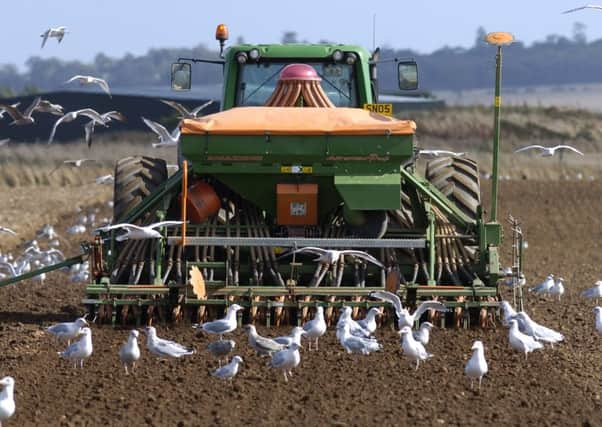Scotsman legal review: Rural affairs


Lawyers in the rural sector are already digesting the impact of the land reform and agricultural legislation which is currently being introduced by the Scottish Parliament.
“In my view, despite an unquestionable air of caution in some quarters, the Land Reform Act, once it’s enacted, is likely to have a marginal effect initially,” says Mike Blair, partner at Gillespie Macandrew.
Advertisement
Hide AdAdvertisement
Hide Ad“This may well be because people are less clear on the practical impact the proposals for land reform will have.
“There is no doubt that the agricultural holdings content of the bill will probably reduce the value to landlords of farms held on traditional tenancies.
“Landowners will live in a still more regulated world, with reduced freedom of manoeuvre.”
Blair says: “It may be that the bill is likely to have a greater impact on urban areas which have, up until now, considered themselves largely unaffected by issues such as community rights.
“The thrust of the review which led to the bill was that the ownership of land should reflect an increasingly diverse mix of public and private ownership, and that local communities should be given the opportunity to own assets which could be anything from council owned property to sports fields,” he says.
“Land reform, which people previously thought of as being an issue mostly for tenants and tweed-suited lairds, will potentially affect those in the town as much as in the country.”
Odell Milne, head of land and rural business at Brodies, says that the main effect of the “huge and numerous changes” put forward is “uncertainty”.
She adds: “the real issue is that our clients are finding it harder to plan their strategies not knowing what the legislation is going to be.”
Advertisement
Hide AdAdvertisement
Hide AdAccording to Milne, land registration in the next 20 years will see a lot of legal work in establishing boundaries – some of which historically may not be known.
Another area concerning Brodies’ clients which will affect landowners, including farmers, is the Law of Succession consultation.
It proposes an extension to the legal rights of spouses and children to enable them to inherit their fair share of land in addition to a share of other property.
“For smaller farmers the division of their land between their children which may be required – instead of the traditional practice of passing to one child – could see a smaller farm become inviable,” Milne explains.
“There has been a proposal that an exemption be added into the legislation to prevent this which could provide that legal rights should not be enforceable if enforcing them would result in the farm becoming inviable.
“It could be difficult to determine a test as to whether or not a unit is viable and this is a crucial issue in the farming industry where the commercial pressure over recent decades has led to larger land holdings, not smaller.”
• The Scotsman’s annual review of the legal world looks at some of the most active areas of legal practice in Scotland. Informed by comprehensive data published by Chambers and Partners and Legal 500, the articles give exclusive insight into the work of the more than 11,000 practicing solicitors and 463 practicing advocates.